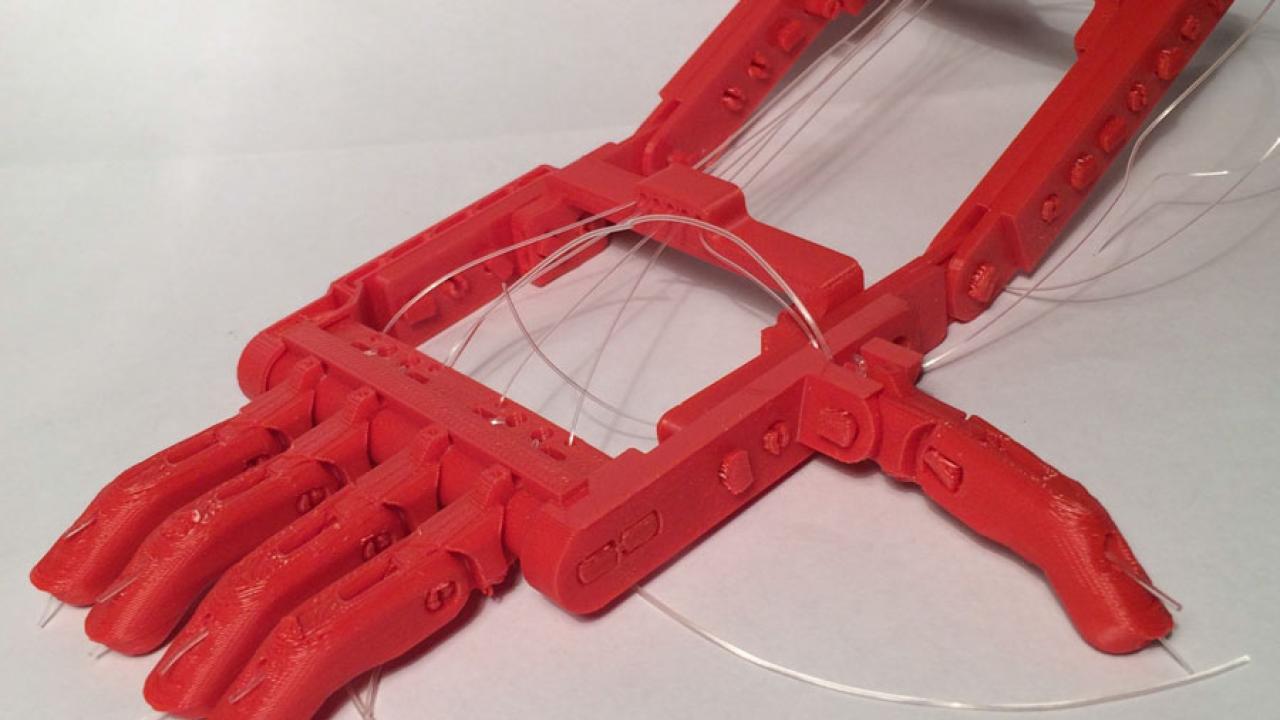
Science and technology are naturally interwoven, each fueling the other. That symbiosis sparked ICTP's Scientific Fabrication Laboratory to host a workshop on new technologies. Scientists came from all over to explore the possibilities technology can offer them, regardless of what field or career stage they're in. "We would like researchers to walk away with the idea that as a scientist you should learn about new technologies—most of the time, they are useful in some way,” says Carlo Fonda, one of the SciFabLab co-directors.
The most recent workshop was really three workshops in one: a survey of both new technologies and how to start doing outreach with them, how maker spaces and new tech can be utilized for and by the disabled, and a deep dive into the specifics of virtual reality. Many talks and activities touched on what open technology can do to spread scientific know-how for all, especially for the disabled. The communities and systems of scientists, inventors, makers, and engineers are still far from fully inclusive: ICTP is working on helping scientists from developing countries join the conversation, and gender and racial inclusion still has a ways to go. It was the third new technologies workshop held at the SciFabLab, and the theme of inclusion drew all three facets together.
“We had a workshop several years ago on science dissemination for the disabled, and since then we’ve a had a lot of requests for another,” says Fonda. Starting with 3D printing examples, there are a lot of technologies that can be easily and cheaply printed to help mitigate physical disabilities, Fonda says. From tactile maps of buildings to right angle spoons to mechanical hands, some are designed to assist with everyday life. Other technologies, like a 3D printed solar system for blind students to explore, are aimed at science communication.
“Inspiring curiosity and understanding in young scholars and new generations of scientists without any exclusion,” is high in the stated aim of the workshop, and so innovation in the use of existing and new technologies to include communities that are not typically reached was a key thread of the workshop. This included a talk on establishing maker spaces similar to the SciFabLab in remote areas, by Javier Montoya of the University of Cartagena in Colombia.
The talk covered a recent Maker Expo that Montoya held at his university, that showcased projects from scientists and makers from Cartagena, Colombia, and the world, with the focus on open technologies and inclusive development. “Being inclusive is not only including many many types of makers but also many many types of technologies and applications,” Montoya said. The event attracted 45 projects, 65 makers, and approximately 500 members of the general public to explore the projects. Scientists attending the ICTP workshop from places ranging from the Democratic Republic of the Congo, Croatia, and the Philippines had a lot of questions for Montoya about the logistics and politics of making such an event happen at their own universities. “It was a small event but it got a great response from both the public and our university,” said Montoya.
In addition to information about bringing events to their corners of the globe, participants to the workshop were also there for a deep dive into one of the buzziest new technologies, virtual reality. One day of the workshop was devoted to sessions on virtual and augmented reality, including what it can do, from research to science communication, and a crash course on various tools and techniques to bring virtual reality projects to life. The day covered 3D mobile augmented reality technologies for research and how 360 degree movies differ from virtual reality. All of the talks kept in mind one fact: there are often unique challenges to using new technologies in developing countries. Participants got to explore cutting-edge technology, keeping developing countries in mind.
Ultimately, the participants attended to get a sense of the possibilities technology can provide to bring science knowledge to people and communities often left out of the conversation. Fonda described past partnerships with schools for the disabled that yielded many innovative and useful applications of 3D printing technology. It’s about access and inspiration: “science should reach everybody,” Fonda says. “Technology can help.”













